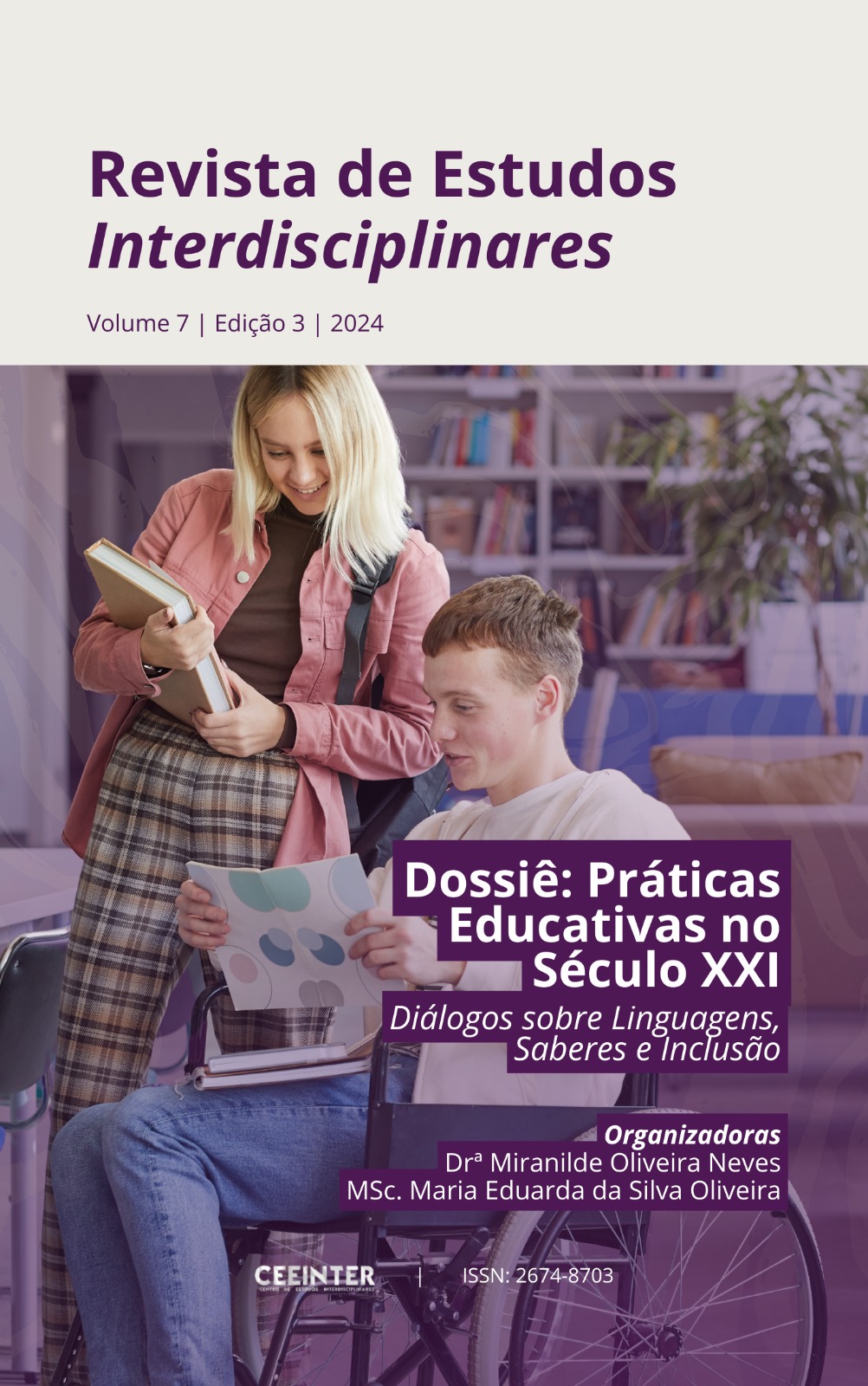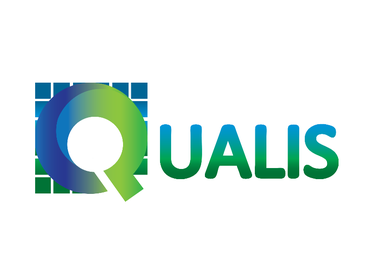Narrativas Orales Educación Simbólica
Lecciones Pedagógicas Universo Amazónico No Humano
Visualizações: 295DOI:
https://doi.org/10.56579/rei.v6i3.1531Palabras clave:
Narrativa oral , Boto , Imaginario amazónico , Educación simbólicaResumen
El objetivo de este artículo es comprender cómo las narrativas orales relacionadas con el Boto enseñan y qué enseñan, considerando los aspectos culturales y lingüísticos simbólicos. Este es un estudio cualitativo cuyo propósito es profundizar nuestra comprensión sobre la educación simbólica en las prácticas socio-comunicativas manifestadas en las narrativas orales relacionadas con las entidades no humanas que habitan el universo cosmológico amazónico. Las preguntas de investigación son: ¿Existe educación simbólica a través de las narrativas orales? Si es así, ¿de qué manera se presenta o personifica esta educación a través del Boto? El estudio señala que la relación entre la Educación Simbólica y sus estudiantes depende no solo del paso del símbolo, sino de todo un conjunto cultural que se construye diariamente, de forma espontánea, colectiva y sensible en las diversas interacciones socio-comunicativas. Así, es una educación colectiva, construida por todos los miembros de la comunidad que comparten el mismo contexto cultural y simbólico.
Descargas
Citas
BAKHTIN, M. Estética da criação verbal. 6 ed. São Paulo: WMF Martins Fontes, [1979] 2011.
BORGES, A. da S. A. Educação Simbólica: o imaginário na Cantoria de Santinho em Povo Novo/ RS . Vol. 1. Porto Alegre: Mundo Acadêmico, 2022.
BORGES, A. da S; FIGUEIRA-CARDOSO, S. (2022). A Common Archetype: Imaginary and Linguistic-Discursive Analysis of the Heroic Feminine in Brazilian and Polish Folk Narratives. In: Ameryka Łacińska 2022; v. 30, n. 3 p. 101-122. DOI: 10.7311/20811152.2022.117.06 DOI: https://doi.org/10.7311/20811152.2022.117.06
BRASIL. Ministério de Educação e Cultura. LDB - Lei nº 9394/96, de 20 de dezembro de 1996.
CARVALHO, L. G. Tradições devotas, lúdicas inovações: o Sairé em múltiplas versões. Sociologia & Antropologia, v. 6, n. 1, p. 237–259, jan. 2016. DOI: https://doi.org/10.1590/2238-38752016v6110
DÉGH, L. Legend and belief: dialectics of a folklore genre. Bloomington: Indiana University Press, 2001.
DURAND, G . A imaginação simbólica. São Paulo: Cultrix, 1988.
DURAND, G. As estruturas antropológicas do imaginário. São Paulo: WMF Martins Fontes, 2012.
DURANTI, A. (2006), ‘Transcripts, like shadows on a wall’. Mind, Culture, and Activity 13(4), 301–310. DOI: https://doi.org/10.1207/s15327884mca1304_3
FARES, J. O boto, um Dândi das águas amazônicas. Revista Moara, Belém, v. 1, n. 5, p.47-63, abr.-set.. 1996.
FIGUEIRA-CARDOSO, S. Digital Text and Brazilian Folklore: Discussion on Referential Activity and Beyond. Academic Journal Of Modern Philology, v. 19, p. 49-64. 2023.
FIGUEIRA-CARDOSO, S. A construção de objetos de discurso em produções textuais descritivas na aula de PLA: O caso a Cuca e o pescador. PORTUGUESE LANGUAGE JOURNAL, v. 16, p. 1-11, 2022. DOI: https://doi.org/10.56515/PLJ562476691
IBGE. Enciclopédia dos Municípios Brasileiros. Rio de Janeiro : IBGE, 1957. v. 14, p. 328-329. Disponível em: http://biblioteca.ibge.gov.br/visualizacao/livros/liv27295_14.pdf. Acesso em: jan. 2014.
KIBRIK, A. A. Reference in discourse. Oxford University Press, 2011. DOI: https://doi.org/10.1093/acprof:oso/9780199215805.001.0001
KOCH, I. G. V. Introdução à linguística textual: trajetória e grandes temas. 2. ed. São Paulo: Editora Contexto, 2021.
MARCUSCHI, L. A. Produção textual, análise de gêneros e compreensão. São Paulo: Parábola Editorial, 2008.
MARCUSCHI, L. A. Da fala para a escrita: atividades de retextualização. 10. ed. São Paulo, Cortez Editora, 2010.
PAIVA, V. L. M. O. Manual de pesquisa em estudos linguísticos. São Paulo: Parábola Editorial, 2019.
POPPER, K. R. Conjectures and refutations: the growth of scientific knowledge. New York: Basic Books, 1963. DOI: https://doi.org/10.1063/1.3050617
SANTOS, L. S. et al.. A medicina tradicional ribeirinha em vozes femininas. Boletim do Museu Paraense Emílio Goeldi. Ciências Humanas, v. 18, n. 1, p. e20210068. 2023. DOI: https://doi.org/10.1590/2178-2547-bgoeldi-2021-0068
TEIXEIRA, M. C. S. A contribuição da obra de Gilbert Durand para a Educação. In: CHAVES, I. M. A. B.; ALMEIDA, R. de (Org.). 100 anos Gilbert Durand. São Paulo: FEUSP, 2022.
TEIXEIRA, M. C. S. Contribuição da obra de Gilbert Durand para a educação: conceitos e derivações para uma pedagogia do imaginário. Educere et Educare, [S. l.], v. 11, n. 21, 2000. DOI: 10.17648/educare.v11i21.13897. Disponível em: https://e-revista.unioeste.br/index.php/educereeteducare/article/view/13897. Acesso em: 23 fev. 2024.
VAZ FILHO, F. A; CARVALHO, L. G. Isso tudo é encantado: histórias, memórias e conhecimentos dos povos amazônicos. Petrópolis-RJ: Vozes, 2023.
WANZELER, Z. C. S. Boto em gente, gente em boto: saberes, memória e educação na Amazônia. 153 f. Dissertação de Mestrado em Educação – Universidade do Estado do Pará, Belém, 2014.
WANZELER, Z. C. S. . Boto em gente, gente em boto: narrativa oral, educação e meio ambiente. Anais do Congresso Nacional de Educação , v. 1, p. 29822-29834, 2013.
WAWZYNIAK, J. V. Humanos e não-humanos no universo transformacional dos ribeirinhos do rio Tapajós – Pará. Mediações - Revista de Ciências Sociais, Londrina, v. 17, n. 1, p. 17–32, 2012. DOI: 10.5433/2176-6665.2012v17n1p17. DOI: https://doi.org/10.5433/2176-6665.2012v17n1p17

Descargas
Publicado
Cómo citar
Número
Sección
Licencia
Derechos de autor 2024 Revista de Estudios Interdisciplinarios

Esta obra está bajo una licencia internacional Creative Commons Atribución 4.0.
La Revista de Estudios Interdisciplinares adopta la Licencia Creative Commons Atribución 4.0 Internacional (CC BY 4.0), que permite compartir y adaptar el trabajo, incluso con fines comerciales, siempre que se otorgue la atribución adecuada y se reconozca la publicación original en esta revista.










